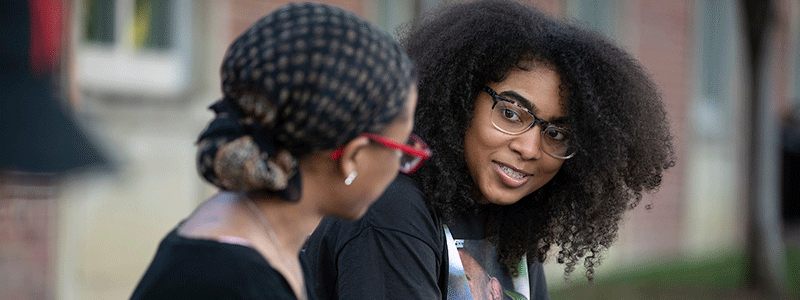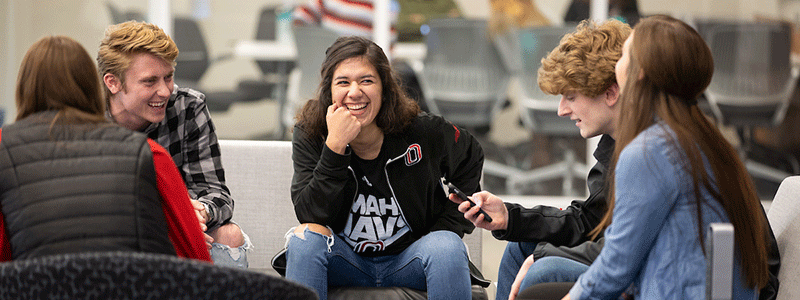
Research shows that as parents understand the characteristics of the drinking scene young adults will be exposed to and talk with them about healthy ways to safely navigate that scene, parents can have a profound influence on their student’s decisions.
If conversations do not go well, then the relationship may need to be strengthened and different communication skills attempted.
Relationships
You will be most effective and influential if you remember that talking to your student about alcohol and marijuana use is not a one-time conversation — it’s a series of conversations that occur over time. You will need to keep the conversation going throughout their entire college experience. Remember, this is a marathon, not a sprint. The effectiveness of your communication about alcohol and cannabis/marijuana is reflective of the relationship you have with your student. Is there a pattern of open communication in your relationship? Have you discussed difficult issues with them (i.e. sex, drugs, friends, and especially alcohol and drug use)?
Communication
Accurate information about the current drinking and marijuana scene at UNO is vital to help parents’ credibility when talking to their students. If students know their parents are informed, they’re more likely to take what their parents say seriously and talk honestly about drinking and marijuana use.
Harm Reduction
Not all drinking and substance use is the same. Successful conversations must be intentionally focused on drinking and other risky behaviors. Parents help prevent high-risk drinking and substance misuse when they talk directly and openly about alcohol and marijuana, and their expectations for their student's behavior.
Scare tactics don't work: Most young adults are hardwired to defend against negative messaging, and they're smart enough to realize when others are trying to manipulate them. Scare tactics don’t address misperceptions about the benefits of alcohol and substance use. Pressure to fit in, the desire to relax after finals, or wanting to forget unpleasant emotions are all reasons why your student might try alcohol or other drugs. When parents recognize factors that may influence their students’ decisions and understand the characteristics of the college drinking and marijuana scene young adults are exposed to, they can effectively talk with them about healthy ways to safely navigate their environment.
Nebraska Methodist College offers a variety of resources and screening tools to support your student and encourage them to stay on track because college shouldn't be an experience your student has to "recover" from later in life.

Year One College Behavior Profile
The Year One College Behavior Profile (Y1CBP) is intended to be used as a pre-matriculation prevention program for entering first-year students to help correct the misperceptions that students have about the prevalence of alcohol and marijuana use before they begin their college careers.
This is a web-based program designed using the principles of brief motivational interviewing and personalized normative feedback to reduce high-risk drinking, marijuana use, and related harms among college students.
Y1CBP is one way for UNO to educate new students about the choices, risks, and consequences of drinking, marijuana, and other high-risk behaviors during college. We want you to know the strategies your student will be taught so you can add to them and reinforce the ones you feel are important for your student.
The Y1CBP tailors information to the situations students will experience. You as the parent know your student better than anyone else. You can take these strategies and adapt them specifically for your student, making the teaching more personal than we ever could.
College Behavior Profile heading
The College Behavior Profile (CBP) is a web-based brief intervention program designed to reduce high-risk drinking, marijuana use and related harms among college students.
CHOICES
CHOICES is a brief alcohol abuse prevention and harm reduction program for college students involving use of an interactive journal. CHOICES engages students in a self-reflective process where they independently choose to change high-risk alcohol and drug behaviors using the information provided, the risks associated with excessive use and available alternative coping strategies.
UNO’s Nebraska’s Collegiate Recovery Community
The college environment can present additional challenges to students in recovery or seeking recovery from addiction. UNO’s Collegiate Recovery Community (CRC) will support a student’s decision to remain sober by connecting students with a community of like-minded peers.